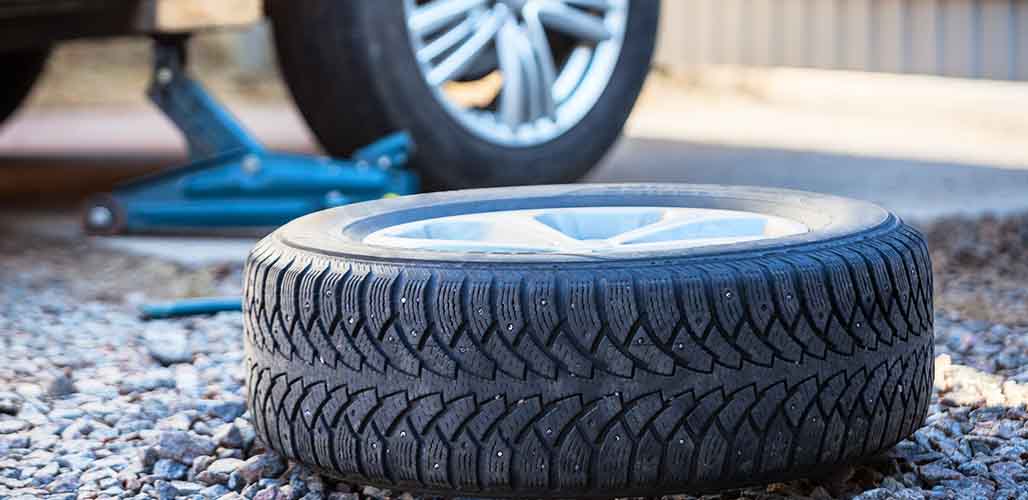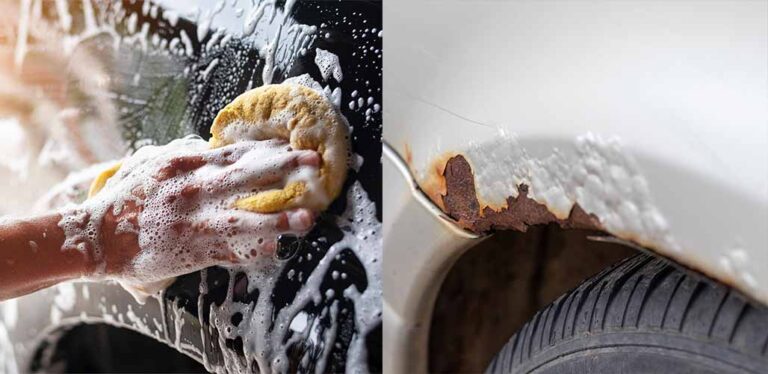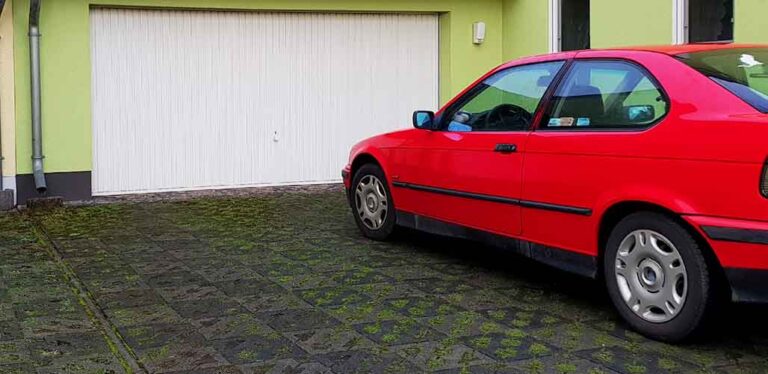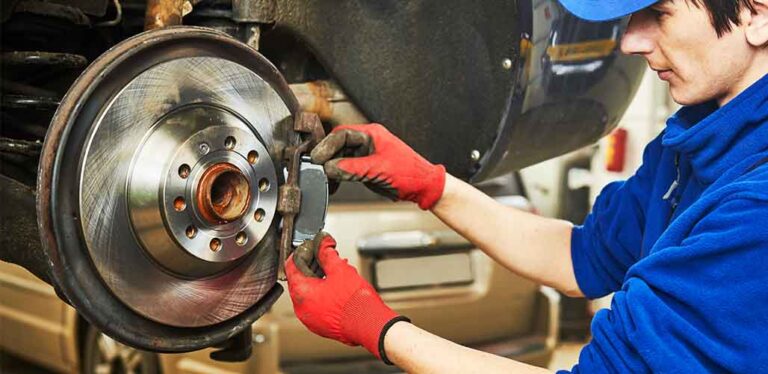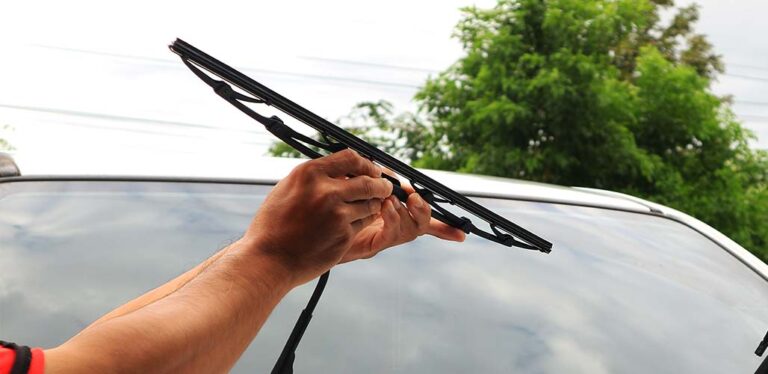How Many Miles Do SUV Tires Last?
As much as we’d like our SUV tires to last, they tend to wear out eventually. For most drivers it’s around 50,000 miles. If you invested in a good set of tires for your SUV and they didn’t last that long or live up to your expectations, chances are it’s not the tires that are to blame. Driving conditions, the terrain, and even the way you drive can impact the life expectancy of the SUV tires. Today I’ll share how long you can expect your tires to last, and how to get the most out of them.
Contents
- How many miles do SUV tires last?
- Do SUV tires wear out faster?
- Should I replace my tires soon?
- How to make your tires last longer
How Many Miles Do SUV Tires Last?
If you average between 12,000 to 15,000 miles of driving a year, then you can expect your brand new SUV tires to last between 3 to 5 years. Those tires usually have a life expectancy of 50,000 miles. But that assumes that you’re a perfect driver, the road conditions are ideal, and that the tires themselves are of top quality.
As we all know, that’s not always the case. You might be a careful driver who goes to great lengths to maintain the tires and avoid potholes and unpaved roads, but there are situations that are beyond your control that would affect the condition of the tires. This in turn can impact the safety of the car itself.
Cars with worn out tires have a higher chance of being involved in a road accident. As the treads wear off, the traction of the tires on the roads diminishes. And since SUVs have a notorious stability problem, if you drive your SUV with bad tires, you might find it more challenging to drive the car safely even on good roads and under favorable conditions.
Why Do SUV Tires Wear Out Quickly?
Even if you have brand new and top notch tires on your SUV, that doesn’t mean that you can forget about buying new tires for the next 3 to 5 years. Before you know it, the repair shop would be recommending that you invest in new tires. Certain factors contribute to this problem.
- Age
- Hazards
- Driving technique
- Maintenance
- Weather
The More You Drive The More Your Tires Age
Time is not one the side of tires. The longer you have them on the SUV, the more likely they are to deteriorate with driving. Even if you don’t use them that often, the tires will simply age. And even though the aged tires might look as good as new with barely worn out treads, the rubber loses a lot of its integrity due to lack of use. Those tires will disintegrate quickly.
Road Hazards Damage Your Tires
If you tend to drive the SUV over potholes, unpaved roads, and occasionally hit the curb or other hurdles on the road, you might be accelerating the deterioration of the tires. This often leads to misaligned wheels which impact the structure and durability of the tires.
Reckless Driving Ages Your Tires
Some SUV drivers drive the vehicle recklessly. They take hard turns around corners, speed up suddenly and hit the brakes with a vengeance. This is often known as lead feet and the tires are the first to pay the price of these poor driving skills.
Poor Road Maintenance Problems
Driving over debris and broken glass on the roads can cause drastic damage to the structural integrity of the tires. You’ll need to check the tires regularly and remove any rocks, nails, or glass stuck between the treads or tearing through the rubber. Also make sure the tires are always aligned and rotated.
Bad Weather Conditions Stresses Your Tires
If you have standard tires on your SUV but you’re driving in winter conditions such as snow, slate, and rain, that puts more stress on the tires, not to mention that it makes driving the SUV more hazardous.
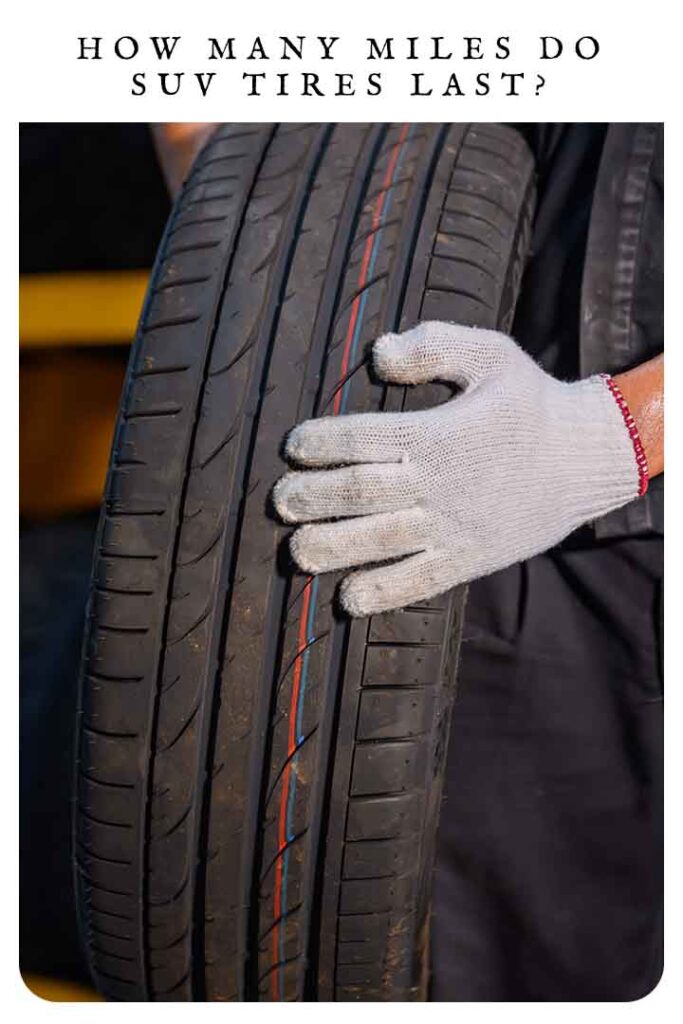
Signs You Should Get New SUV Tires
Many SUV drivers tend to take their tires for granted. In other words, they tend to forget about the tires and hardly give them even a casual inspection every once in a while. As a result, they might miss some glaring signs that it’s about time the tires on the SUV have been replaced. Here are the signs that the tires have reached the end of the road.
- Tread Loss: This is one of the most obvious telltale signs that the tires need to be replaced. The more you drive the SUV, the less depth the treads will have. Tread loss might also indicate other problems in the tires. Underinflated tires have tread loss around the edges. While misaligned tires will have tread loss on the inner or outer shoulders. But if the tread loss is in the middle, that means the tires are overinflated.
- Vibrations: If you experience vibrations and loud noise when starting to drive the SUV, that might point to misaligned tires which caused uneven wear off.
- Expired DOT Code: Every tire has a Department Of Transport (DOT) number that indicates the week and year of manufacturing. The last four digits of the number following the DOT letters on the side of the tire tell you when it was manufactured. If you see the number 4520, that means the tire was manufactured on the 45th week of the year 2020. Tires older than 10 years should be thrown out even if they have never been used before.
Tips To Care For And Maintain SUV Tires
Your SUV tires are exposed to a lot of wear and tear not just from contact with the surface of the road, but also from different factors in the car itself. Wheel alignment for example can cause serious damage to the tires and shorten their life expectancy. Here are a few tips to help you maintain the SUV tires.
- Check the tire pressure on a monthly basis to make sure the tires have the right psi. This prevents uneven wear and tear of the tires and keeps the SUV balanced.
- Get the wheels checked regularly for balance and alignment.
- Rotate the front and rear tires for front and rear driving SUVs. The front tires of FWD cars wear off faster than the rear tires and vice versa. Rotating the tires extends their life expectancy.
- Replace the tires if the tread line reaches the tread-wear indicator.
- Check the health of the treads with a penny. Place the penny between the treads with the Lincoln image facing you. The treads should cover the top of Lincoln’s head. If they don’t, you need to get new tires.
How Many Miles Do SUV Tires Last?
A good set of tires on the SUV should last you anything between 3 to 5 years, which is around 50,000 miles for most drivers. However, some issues with the vehicle can reduce the life expectancy of the tires. If you detect tread loss, vibrations in the car as you pull out, or noise when rounding corners, these are signs the tires are worn out and need to be replaced.
How Do Tires Cope With Different Surfaces?
- Can I drive my car through thick sand?
- Does water damage your tires?
- Is it ever okay to drive on glass?
- How well do cars drive on hot surfaces?
References
- Cole et al. Wear and Tear of Tyres: A Stealthy Source of Microplastics in the Environment. 2017.
- Tamis et al. Environmental risks of car tire microplastic particles and other road runoff pollutants. 2021.
- Przydatek et al. Effectiveness of selected issues related to used tyre management in Poland. 2022.

